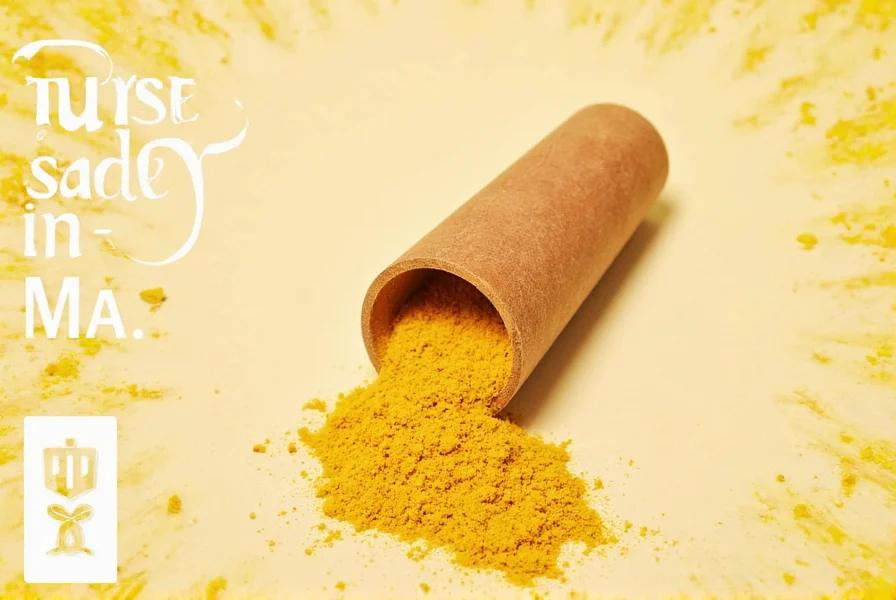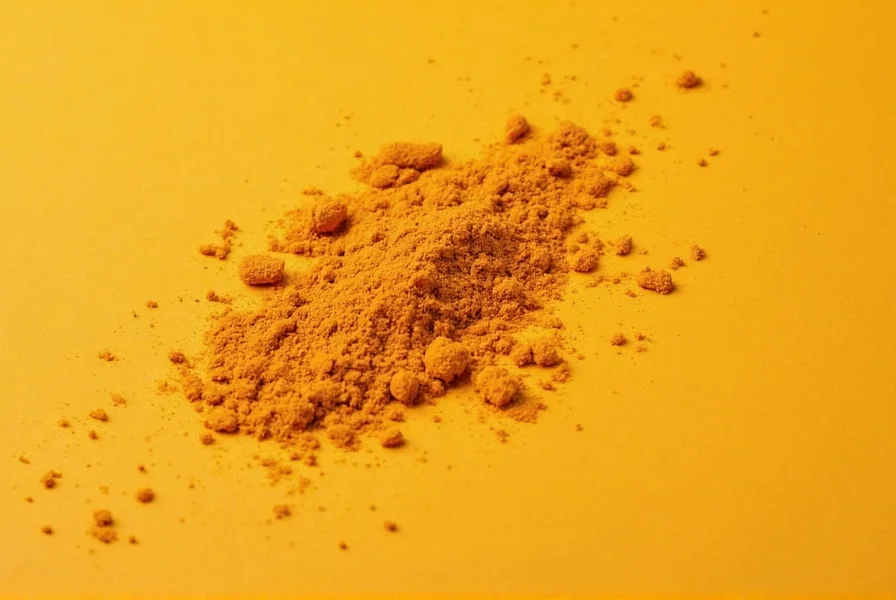Understanding the appropriate turmeric dosage is essential for safely harnessing its potential health benefits. Turmeric, a vibrant yellow spice commonly used in Indian cuisine, contains curcumin—the compound responsible for most of its researched health properties. While turmeric has been used in traditional medicine for centuries, modern science continues to investigate optimal dosing for various health applications.
Understanding Turmeric and Curcumin
Turmeric (Curcuma longa) is a flowering plant whose rhizomes are dried and ground to produce the familiar spice. The primary active component, curcumin, represents only about 2-8% of turmeric by weight. This distinction is crucial when determining proper dosage, as most research on turmeric's health benefits specifically examines curcumin extracts.
When considering how much turmeric to take for inflammation, it's important to differentiate between culinary use and therapeutic supplementation. The amount of turmeric you might use in cooking differs significantly from concentrated supplement forms designed for specific health outcomes.
Different Forms of Turmeric and Their Potency
Turmeric comes in several forms, each with different concentration levels:
| Form | Curcumin Content | Typical Daily Dosage Range |
|---|---|---|
| Fresh turmeric root | 2-8% curcumin | 1.5-3 inches grated (about 15-30g) |
| Dried turmeric powder | 2-8% curcumin | 1-3 grams (½-1½ teaspoons) |
| Standardized curcumin extract | 95% curcumin | 400-600 mg, 2-3 times daily |
| Enhanced absorption formula | Varies (often with piperine) | Lower doses effective (250-500 mg) |
When researching how much turmeric to take daily for weight loss or other specific benefits, remember that different health goals may require different dosages. The bioavailability of curcumin is relatively low, which is why many supplements include black pepper extract (piperine) to enhance absorption by up to 2,000%.
Evidence-Based Dosage Recommendations
Scientific research provides guidance on appropriate turmeric dosing for various health concerns:
- General wellness and prevention: 500-1,000 mg of curcumin daily, or 1-3 grams of turmeric powder in food
- Inflammation management: 400-600 mg of curcumin extract 2-3 times daily (total 800-1,800 mg)
- Joint health support: Studies often use 1,000 mg of curcumin daily for osteoarthritis
- Digestive health: 1.5-3 grams of turmeric powder daily in food
When determining how much turmeric to take for arthritis, research suggests that doses providing 800-1,000 mg of curcumin daily show the most consistent benefits. A 2016 review published in the Journal of Medicinal Food concluded that doses of 1,000 mg per day of curcumin were effective for reducing osteoarthritis symptoms.

Safety Considerations and Potential Side Effects
Turmeric is generally recognized as safe (GRAS) by the FDA when used as a food ingredient. However, higher doses in supplement form may cause:
- Digestive issues (nausea, diarrhea) at doses above 1,200-1,500 mg
- Increased risk of bleeding, especially when combined with blood-thinning medications
- Potential interactions with diabetes medications
- Gallbladder contractions that may worsen gallstones
The European Food Safety Authority established an acceptable daily intake of 0.13 mg per pound (0.3 mg per kg) of body weight for curcumin. For a 150-pound person, this translates to approximately 200 mg of curcumin daily.
When considering how much turmeric to take while pregnant, pregnant women should limit turmeric to culinary amounts only, as high-dose supplements haven't been adequately studied for safety during pregnancy.
Factors Affecting Optimal Turmeric Dosage
Several factors influence the appropriate turmeric dosage for an individual:
- Health status: Those with liver conditions should use caution with high doses
- Medication interactions: Turmeric may interact with blood thinners, diabetes medications, and certain chemotherapy drugs
- Absorption enhancers: Formulas containing piperine or fats increase bioavailability, potentially allowing lower doses
- Individual response: Some people experience benefits at lower doses than others
For those wondering how much turmeric to take for skin health, topical applications typically use 1-5% curcumin concentrations, while internal use follows general wellness dosage guidelines.

Maximizing Turmeric Absorption
Curcumin has notoriously poor bioavailability on its own. To maximize absorption and effectiveness:
- Combine with black pepper (contains piperine which boosts absorption)
- Take with healthy fats (curcumin is fat-soluble)
- Consider enhanced absorption formulas (phospholipid complexes, nanoparticles)
- Spread doses throughout the day rather than taking a single large dose
When determining how much turmeric to take with black pepper, most enhanced formulas contain 5-20 mg of piperine per dose. If combining on your own, a ratio of 15-20 parts turmeric to 1 part black pepper is commonly recommended.
When to Consult a Healthcare Provider
Before starting turmeric supplementation, consult with a healthcare provider if you:
- Take blood-thinning medications (warfarin, aspirin, etc.)
- Have gallbladder issues or gallstones
- Have diabetes or take blood sugar medications
- Are scheduled for surgery within the next two weeks
- Are pregnant or breastfeeding
- Have a hormone-sensitive condition
Your healthcare provider can help determine how much turmeric to take for your specific health condition while considering potential interactions with your current medications and health status.
Conclusion
Determining the right turmeric dosage requires balancing potential benefits with safety considerations. For general wellness, culinary use of 1-3 grams of turmeric powder daily is safe for most people. For targeted health benefits, standardized curcumin supplements providing 400-600 mg per dose, taken 2-3 times daily (total 800-1,800 mg), represent the most researched dosage range.
Remember that more isn't always better—exceeding recommended doses may cause side effects without providing additional benefits. The optimal turmeric dosage varies by individual health status, goals, and formulation. When in doubt about how much turmeric to take for specific health concerns, consult with a qualified healthcare provider who understands your complete medical history.
Frequently Asked Questions
What is the maximum safe daily dose of turmeric?
For culinary use, up to 3 grams of turmeric powder daily is generally considered safe. For curcumin supplements, most studies use doses up to 8 grams daily without serious side effects, but doses above 1,200-1,500 mg may cause digestive issues in some people. The European Food Safety Authority recommends no more than 0.3 mg of curcumin per kilogram of body weight daily (approximately 200 mg for a 150-pound person).
How long does it take for turmeric to work for inflammation?
Most people notice reduced inflammation symptoms within 4-8 weeks of consistent daily use at appropriate doses (typically 800-1,000 mg of curcumin daily). Some studies show measurable improvements in inflammatory markers within 2 weeks, but noticeable symptom relief often takes longer. Consistency is key, as curcumin needs to accumulate in the system to reach therapeutic levels.
Can I take turmeric with other supplements?
Yes, turmeric generally combines well with many supplements, particularly those supporting joint health or inflammation. However, avoid combining high-dose turmeric with other blood-thinning supplements like fish oil, garlic, or ginkgo biloba without medical supervision. Turmeric may enhance the effects of certain supplements, potentially requiring dosage adjustments.
Should I take turmeric in the morning or at night?
Timing depends on your goals and how your body responds. Some people find turmeric energizing and prefer morning doses, while others take it at night for its potential sleep-supporting anti-inflammatory effects. For best absorption, take turmeric with a meal containing healthy fats. If taking multiple doses daily, split them between morning and evening. If you experience digestive upset, try taking it with your largest meal of the day.
How do I know if my turmeric supplement is working?
Track specific symptoms you're targeting (like joint pain or stiffness) using a symptom journal. Many people notice reduced inflammation within 4-8 weeks. Blood tests measuring inflammatory markers like CRP may show improvement. For general wellness benefits, you might notice improved digestion or energy levels. Remember that individual responses vary, and some people are "non-responders" to curcumin due to genetic or metabolic factors.











 浙公网安备
33010002000092号
浙公网安备
33010002000092号 浙B2-20120091-4
浙B2-20120091-4